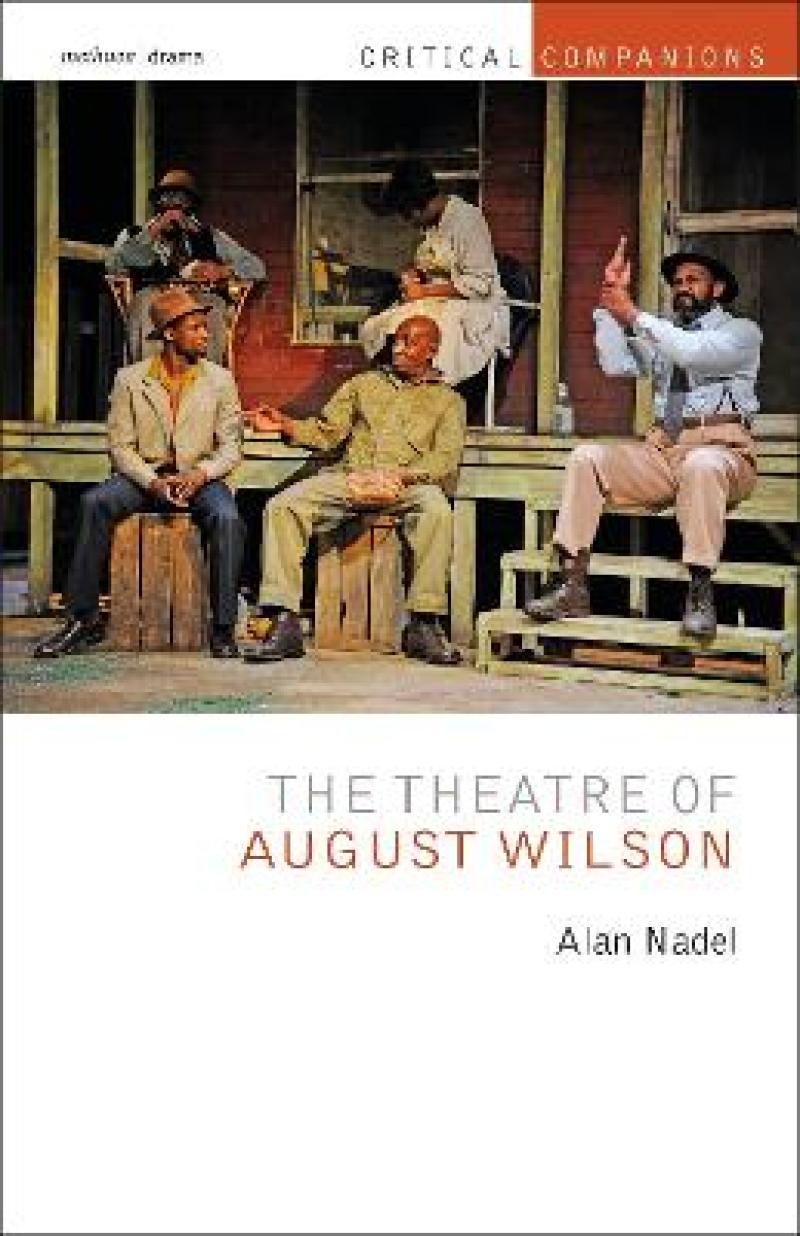The first comprehensive study of August Wilson’s drama introduces the major themes and motifs that unite Wilson’s ten-play cycle about African American life in each decade of the twentieth century. Framed by Wilson’s life experiences and informed by his extensive interviews, this book provides fresh, coherent, detailed readings of each play, well-situated in the extant scholarship. It also provides an overview of the cycle as a whole, demonstrating how it comprises a compelling interrogation of American culture and historiography.
Keenly aware of the musical paradigms informing Wilson’s dramatic technique, Nadel shows how jazz and, particularly, the blues provide the structural mechanisms that allow Wilson to examine alternative notions of time, property, and law. Wilson’s improvisational logics become crucial to expressing his notions of black identity and resituating the relationship of literal to figurative in the African American community.
The final two chapters include contributions by scholars Harry J. Elam, Jr. and Donald E. Pease
Les mer
Acknowledgments viii
Introduction 1
1 Becoming August Wilson 3
2 History and/as Performance: The Drama of African American Historiography 17
3 Cutting the Historical Record, Recording the Blues: Ma Rainey’s Black Bottom 37
4 Beginning Again, Again: Gem of the Ocean and Jitney 51
5 The Boundaries of Property and the Properties of Humanity: Fences and Joe Turner’s Come and Gone 67
6 The Properties of the Piano and the Legacy of Human Property: The Piano Lesson 87
7 Urban Renewal by Any Means Necessary: Two Trains Running 109
8 “Sad Stories of the Death of Kings”: Seven Guitars and King Hedley II 127
9 The Century That Can’t Fix Nothing with the Law: Radio Golf 139
10 Critical and Performance Perspectives 159
Seven Guitars and King Hedley II: August Wilson’s Lazarus Complex Donald E. Pease 159
Performance Politics and Authenticity: Joe Turner’s Come and Gone and Jitney Harry J. Elam, Jr. 179
Notes 199
References 211
Notes on Contributors 215
Index 216
Les mer
The Theatre of August Wilson is an illuminating examination of Wilson’s ten-play African American history cycle as US history. For the benefit of those who need it, Nadel (Univ. of Kentucky) provides a refresher on Plessy v. Ferguson and the theological disputes of Martin Luther King Jr. and Malcolm X alongside explanations of how Wilson's plays reflect and interrogate these and other historical milestones … Summing Up: Recommended.
Les mer
A comprehensive introduction to the work of the preeminent Afro-American playwright of his generation, focusing on Wilson's ten-play cycle and their context.
Clearly contextualizes Wilson's work and considers the production history of his plays
Ranging across the 20th and 21st centuries, Methuen Drama's Critical Companions series covers playwrights, theatre makers, movements and periods of international theatre and performance. Drawing on original research, each volume provides a critical survey and analysis of a body of work by one author, giving attention to both text and performance. In addition, each book features several complementary scholarly essays and interviews with practitioners to provide alternative perspectives on the subject.
Les mer
Produktdetaljer
ISBN
9781472530486
Publisert
2018-05-17
Utgiver
Vendor
Methuen Drama
Vekt
422 gr
Høyde
216 mm
Bredde
138 mm
Aldersnivå
P, 06
Språk
Product language
Engelsk
Format
Product format
Innbundet
Antall sider
232
Forfatter
